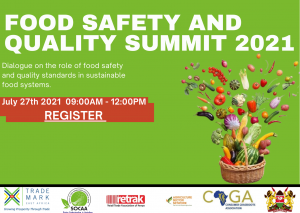نوع الحوار
بدعوة من
لغة فعالية الحوار
التاريخ/الوقت
إلى:
المدينة
نطاق التركيز الجغرافي
التنسيق
يُرجى مراجعة التفاصيل أدناه للحصول على معلومات التسجيل إذا كانت متوفرة أو الاتصال بمنظم الحوار إذا كنت ترغب في الحضور.
القيّم
الوصف
TradeMark East Africa (TMEA) was established in 2010 as a not-for-profit organisation focusing on Aid for Trade (AfT) delivery in East Africa. Out of an initial budget of less than US$42 million in 2010, TMEA had become, by June 2017, one of the leading AfT instruments in the world with a cumulative budget of more than US$ 900 million in 2019 and programmes across 8 Eastern African countries. Our goal is greater prosperity in Eastern Africa by increasing trade within the region and with the rest of the world. Our interventions are clustered into two broad outcomes: (i) Reducing barriers to trade; and (ii) Improving business competitiveness.
TMEA’s theory of change recognises that barriers to trade raise the costs of doing business, thus reducing demand for imports and exports within the region, and between the region and the world. Targeted interventions in selected key areas of trade can reduce these costs. As a result, the TMEA Standards and Quality Infrastructure (SQI) and Sanitary and Phytosanitary (SPS) Programme aims to ensure that SPS Measures, technical regulations, standards, and related conformity assessment procedures are applied by importing countries do not create unnecessary obstacles to trade. To meet these objectives, the programme collaborates regionally with the East African Community (EAC) and National Standards Bodies (NSBs), and SPS Competent Authorities at the national level.
Sanitary and Phytosanitary (SPS) measures are those measures that Competent Authorities may take to safeguard their consumers and environment from risks arising from traded agricultural goods. The measures usually have to do with risks associated with the following:
- Food Safety
- Animal Health
- Plant Heath
This summit is geared towards promoting current and emerging solutions addressing food safety and quality in the policy, production, manufacturing, transport, and trade spaces, through harmonizing stakeholder initiatives and identifying common action points where different stakeholders in the food supply system can synthesize their efforts in strengthening food systems. It builds on several Multi-stakeholder platforms in Kenya addressing the role of food safety in sustainable food systems, namely the World Food Safety Day and the Africa Food Safety and Quality Summit. Among the identified stakeholders are producers and private sector bodies, consumers, competent authorities, researchers and government.
Register to participate: http://bit.ly/2Tx3kZe
الشكر والتقدير


